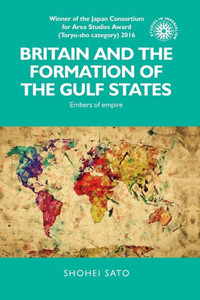This book is about the end of the British Empire in the Middle East. It offers new insight into the relationship that was nurtured between Britain and the Gulf rulers at the height of the empire and how this has influenced the structure of international society today. Over the last four decades the Persian Gulf region has gone through oil shocks, wars and political changes but the basic entities of the southern Gulf States have largely remained in place. Historically, nine separate states had stood in parallel to each other under British influence. At various points, plans were discussed to amalgamate the nine into one, two, three or even four separate entities. The eventual emergence of the smaller but prosperous members such as Qatar, Bahrain and the United Arab Emirates was not at all evident until 1971. How did such a resilient system arise, given such seemingly contested societies? Drawing on extensive multi-archival research in the British, American and Gulf archives, Britain and the formation of the Gulf States considers the factors that drove the formation of these three new states we see today. It illuminates a series of negotiations between British diplomats and the Gulf rulers that inadvertently led these states to take their current shapes and addresses the crucial issue of self-determination versus 'better together'. This book will be of interest not only to students and scholars of the British Empire or the Middle East but also to those with a broader interest in the transformation of the modern world.
- | Author: Shohei Sato
- | Publisher: Manchester University Press
- | Publication Date: Feb 04, 2016
- | Number of Pages: 176 pages
- | Language: English
- | Binding: Hardcover
- | ISBN-10: 0719099684
- | ISBN-13: 9780719099687
